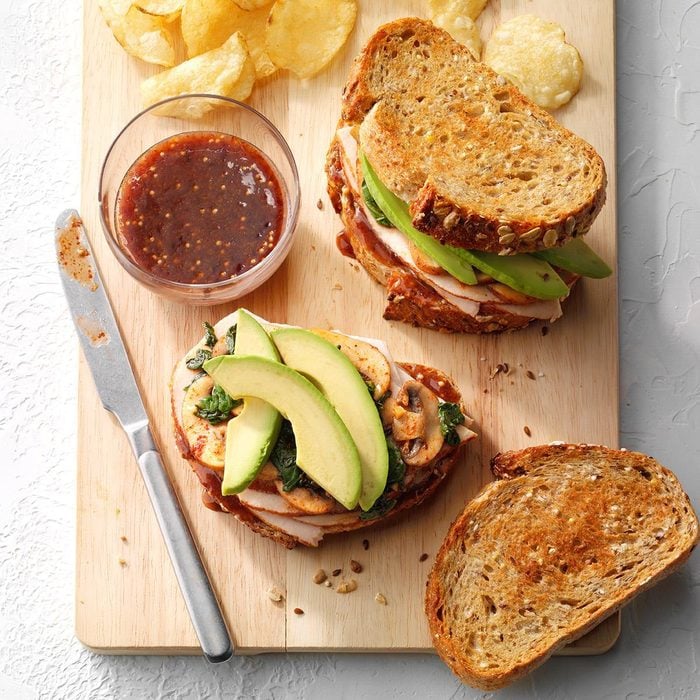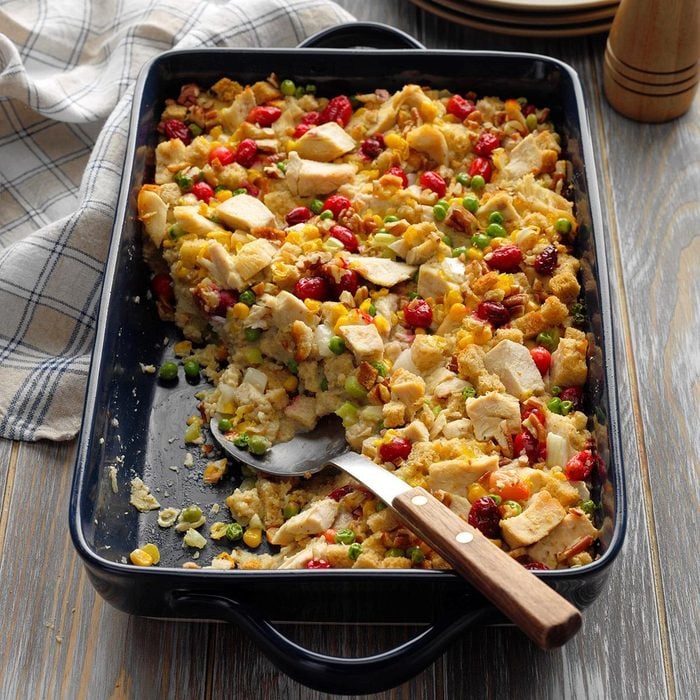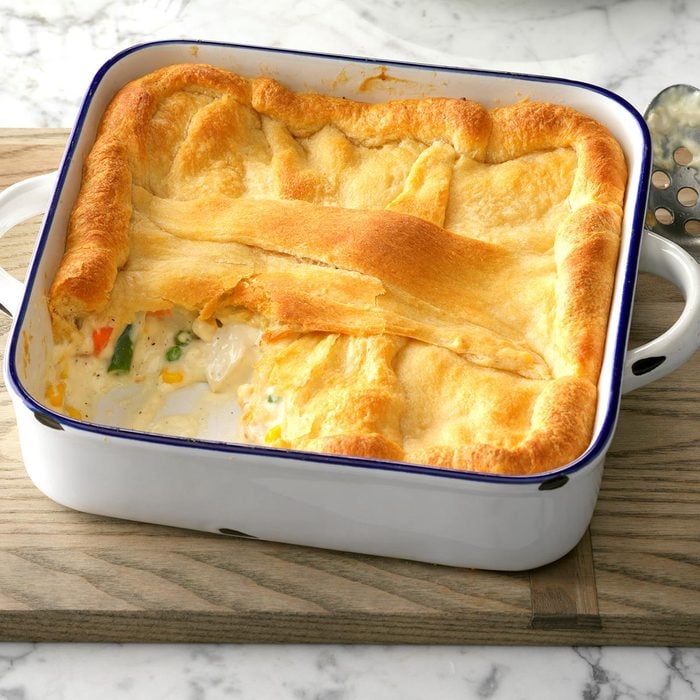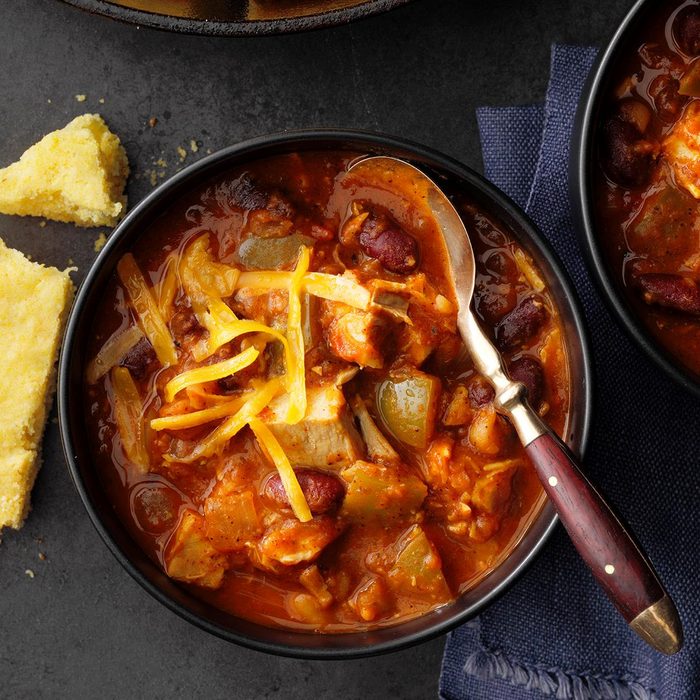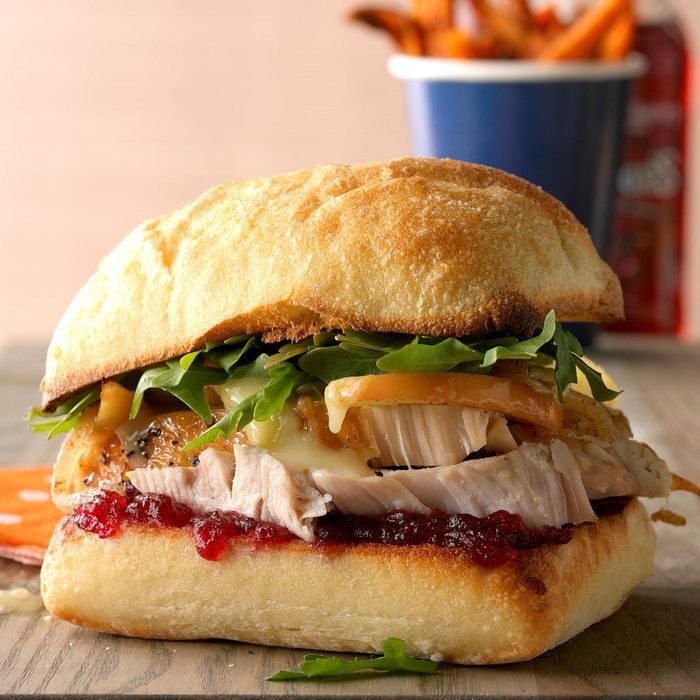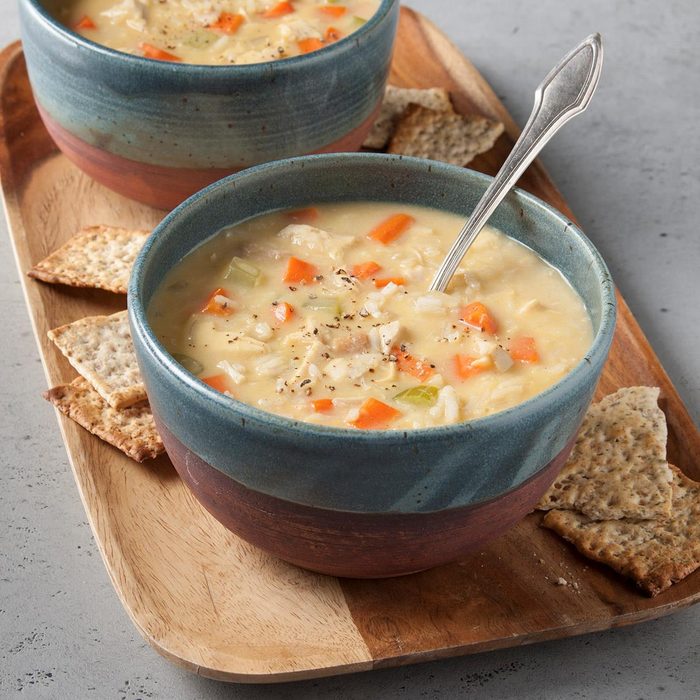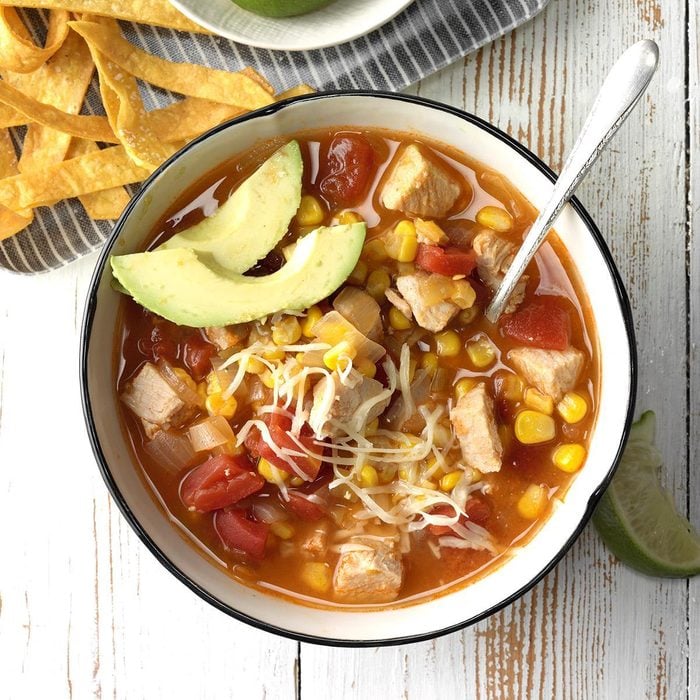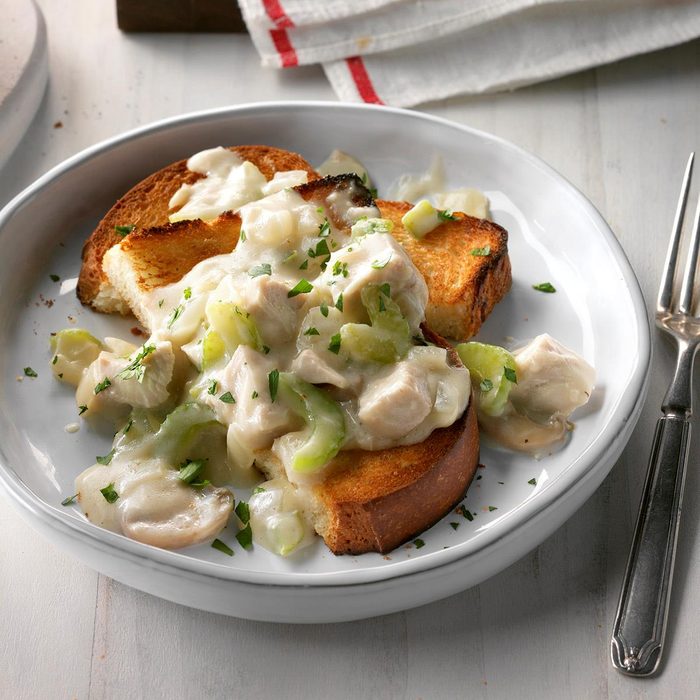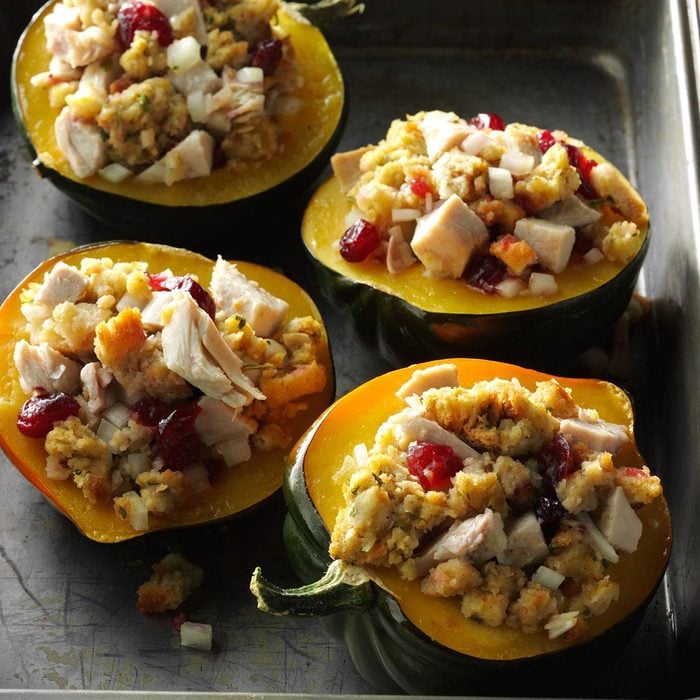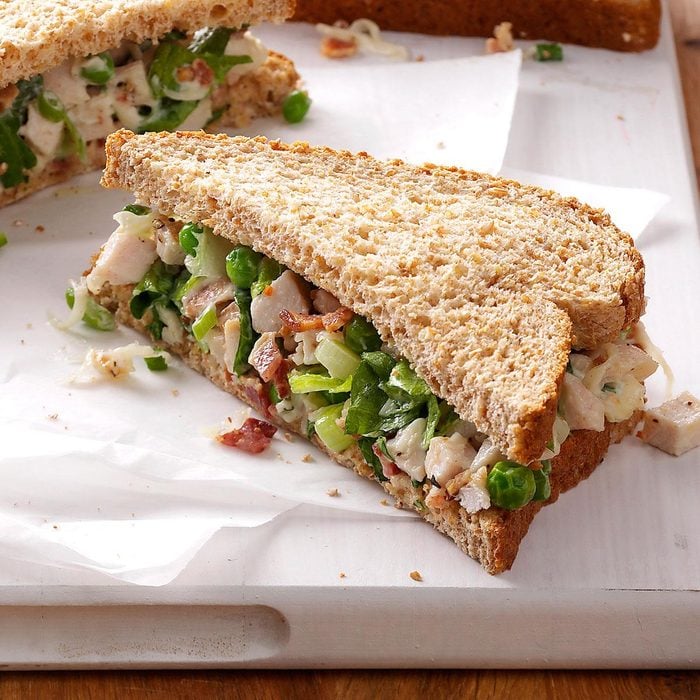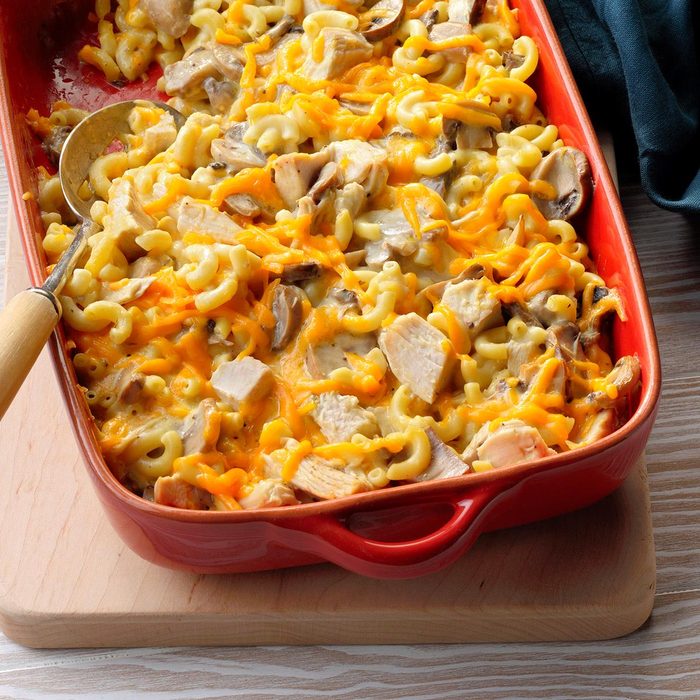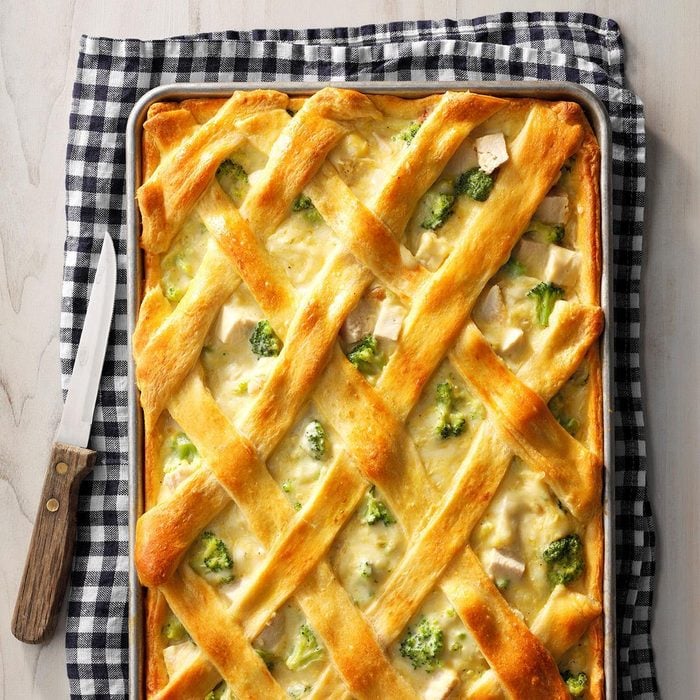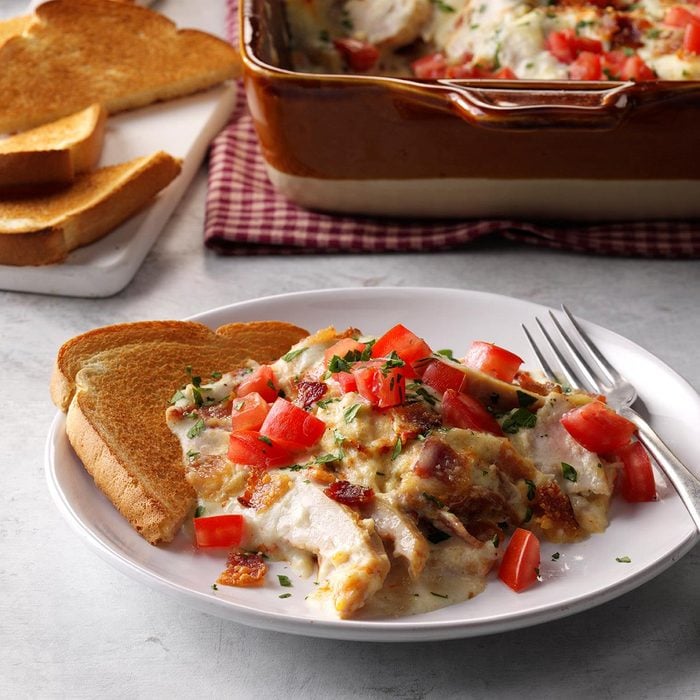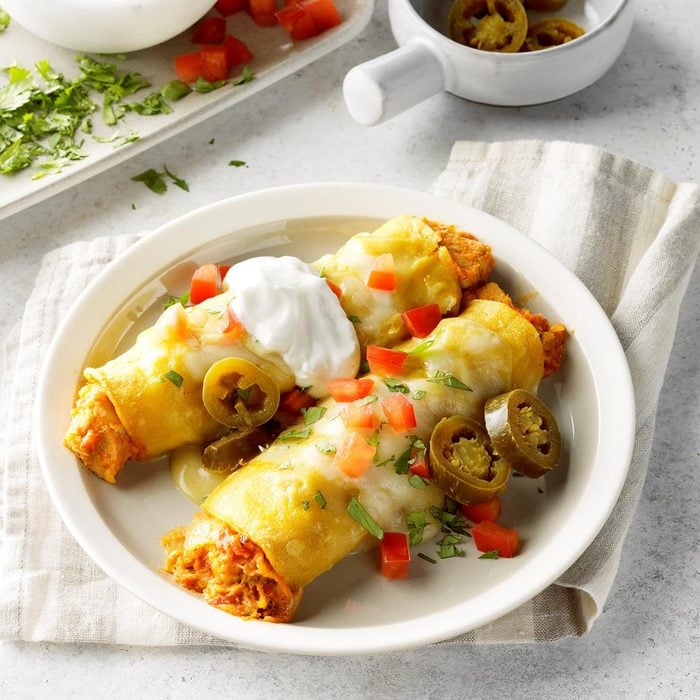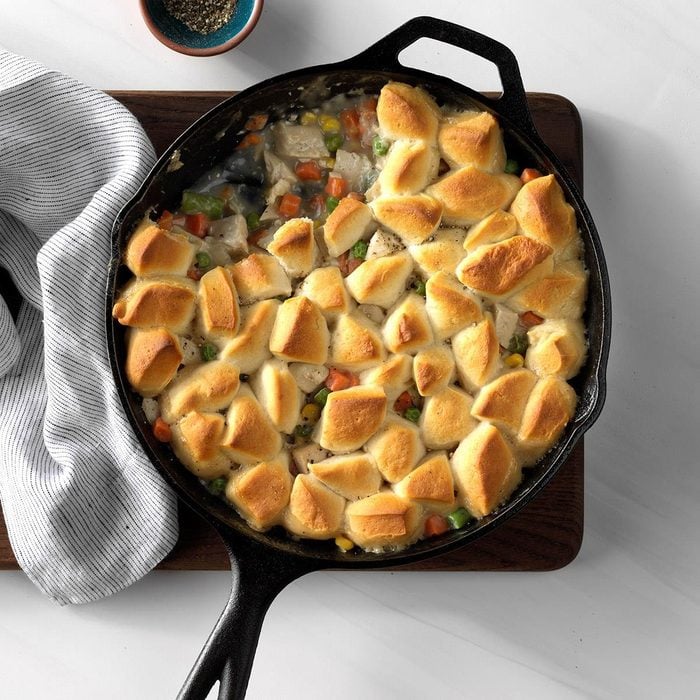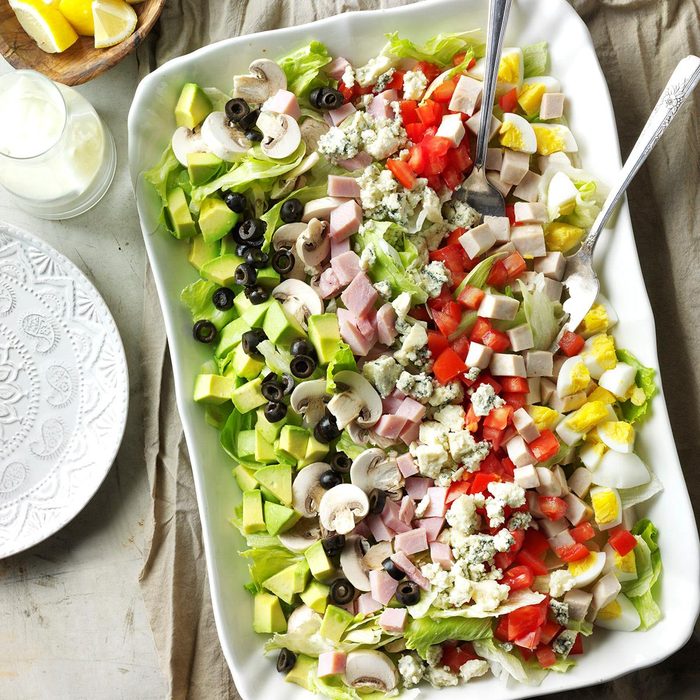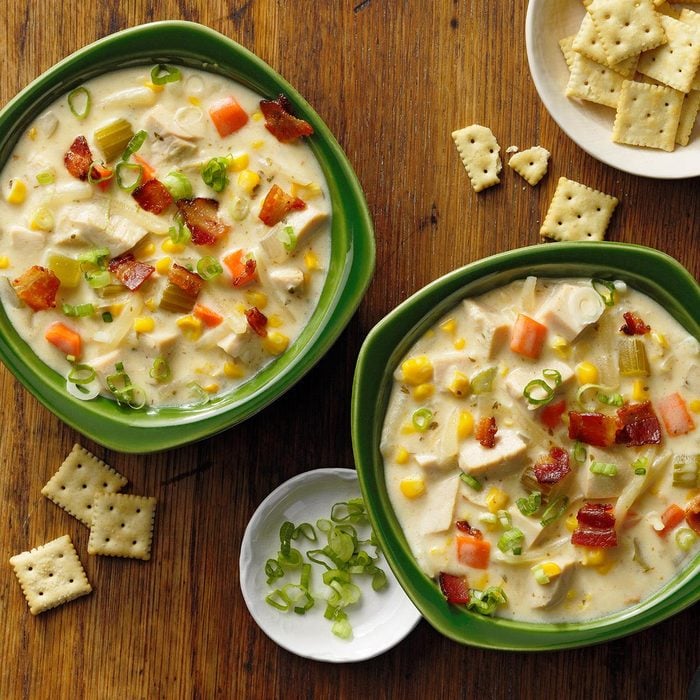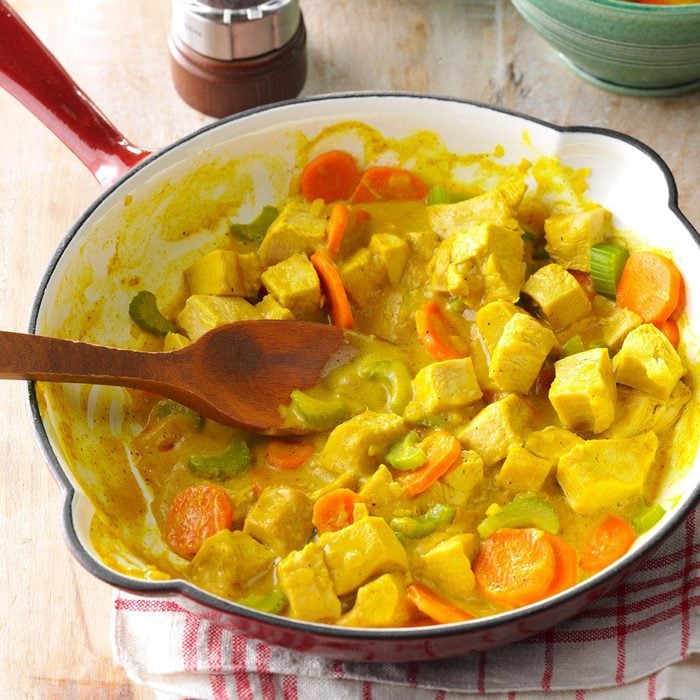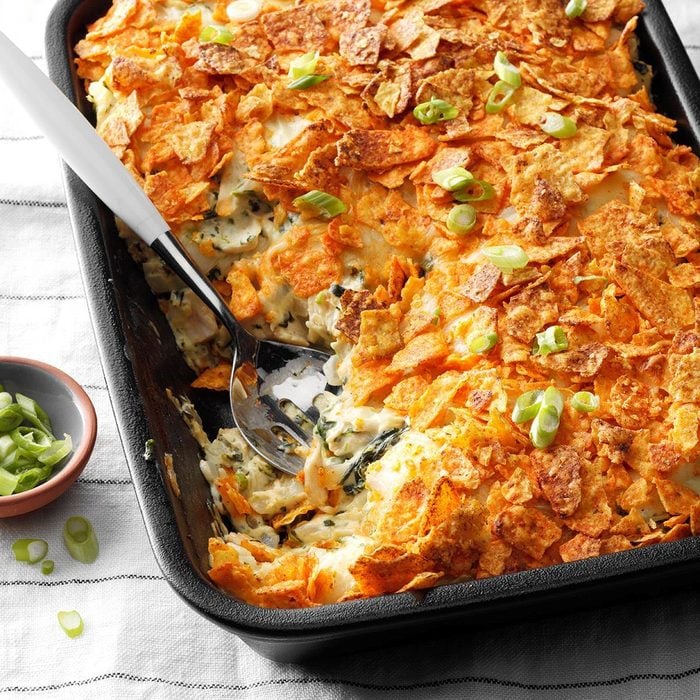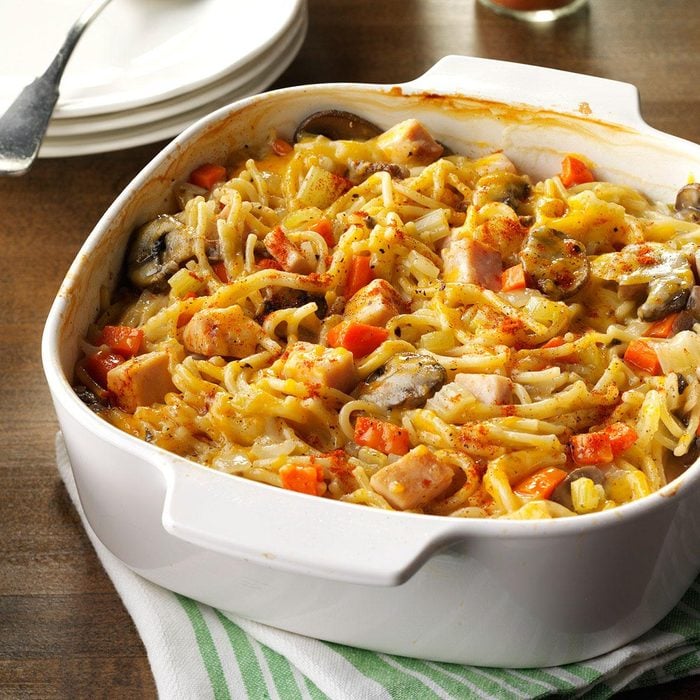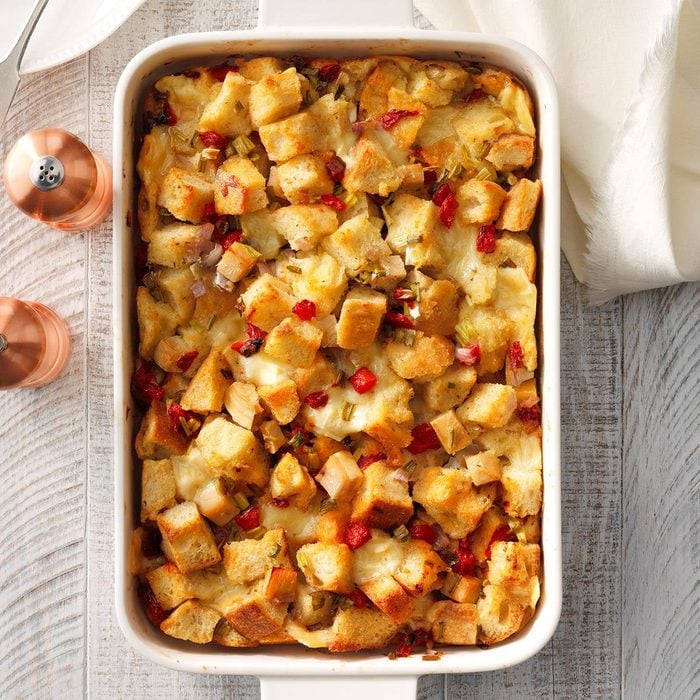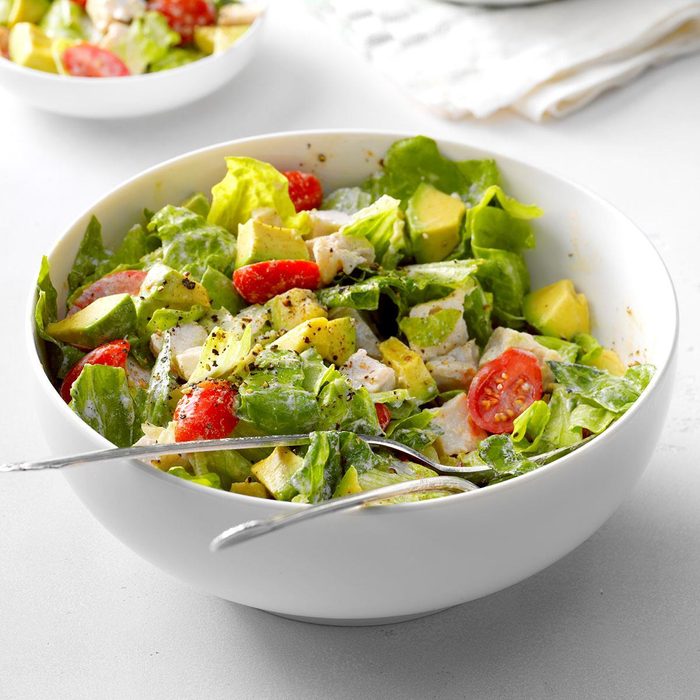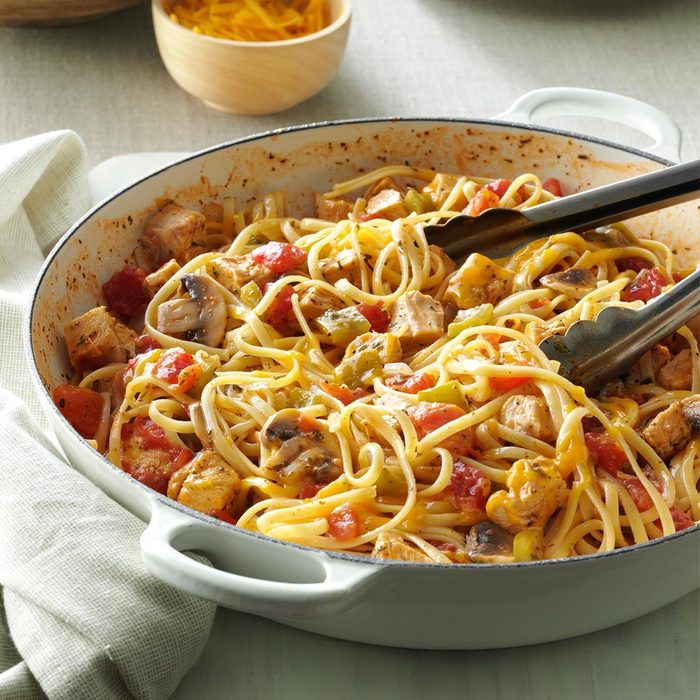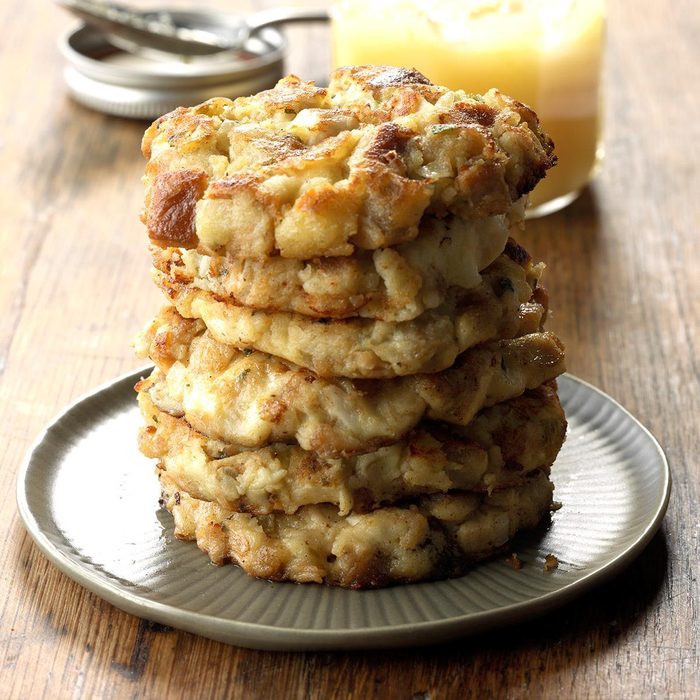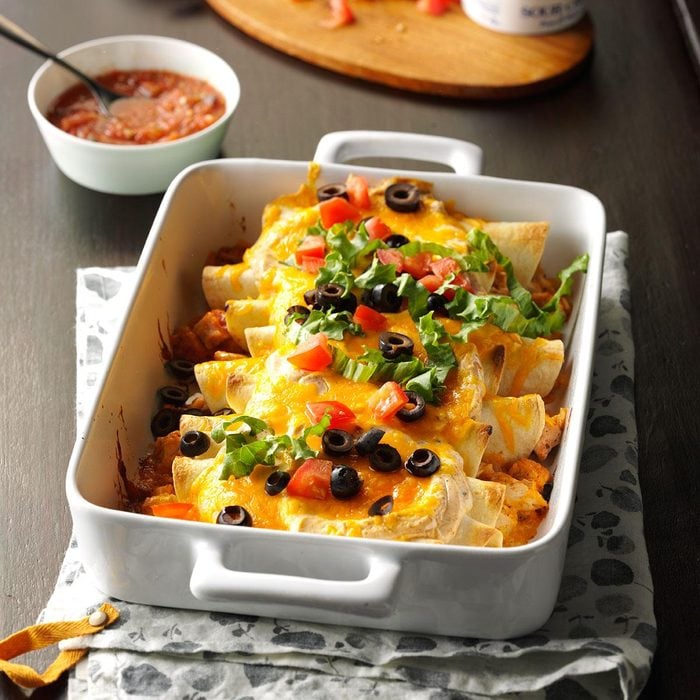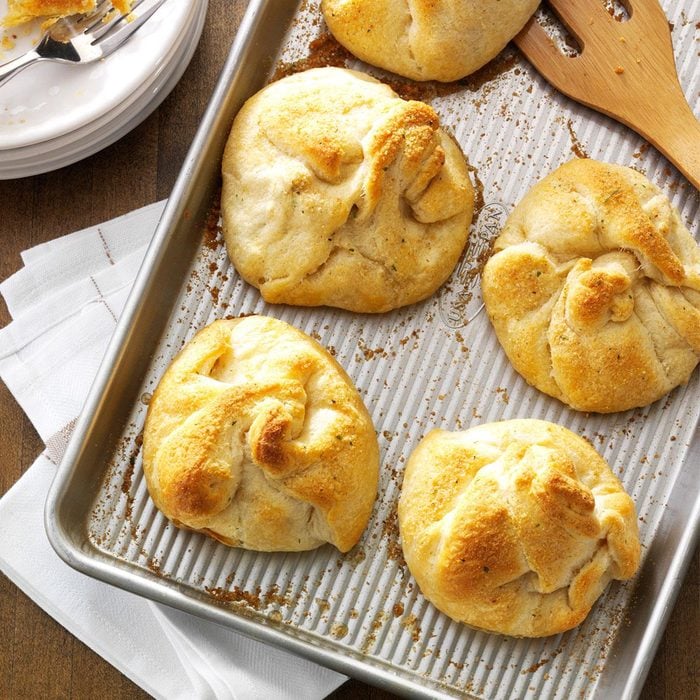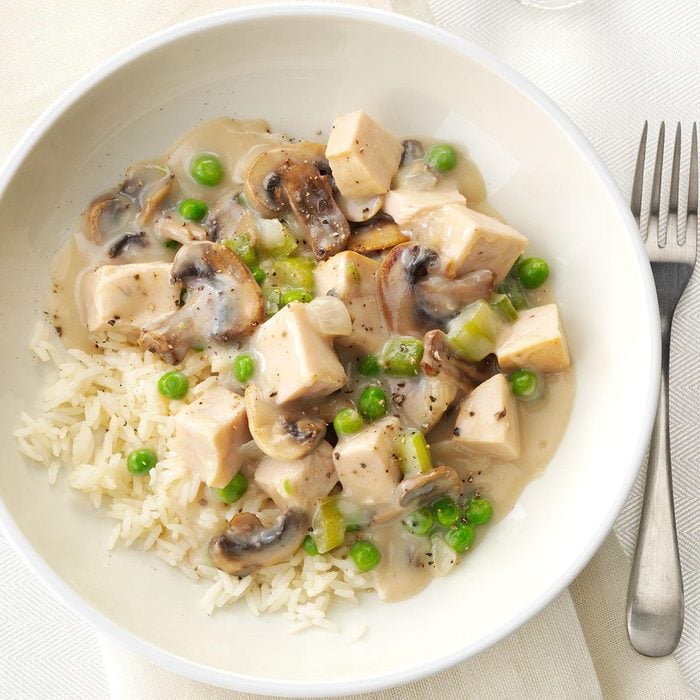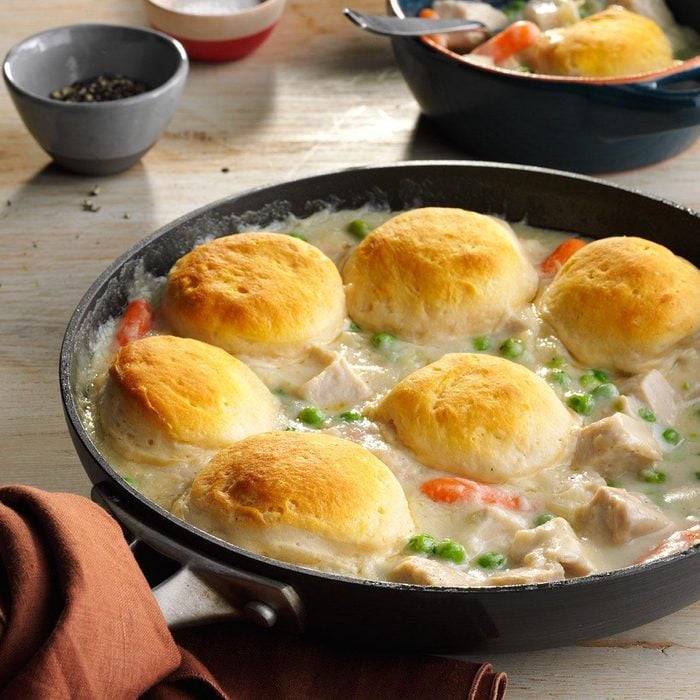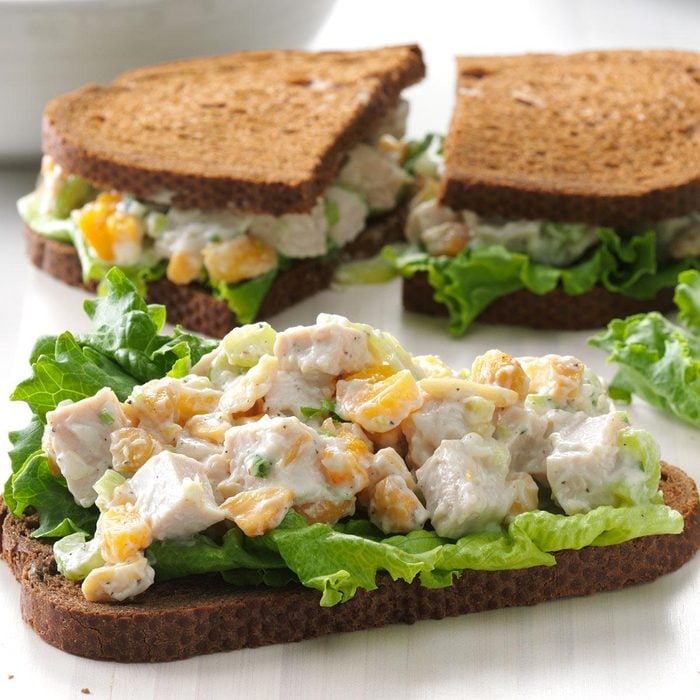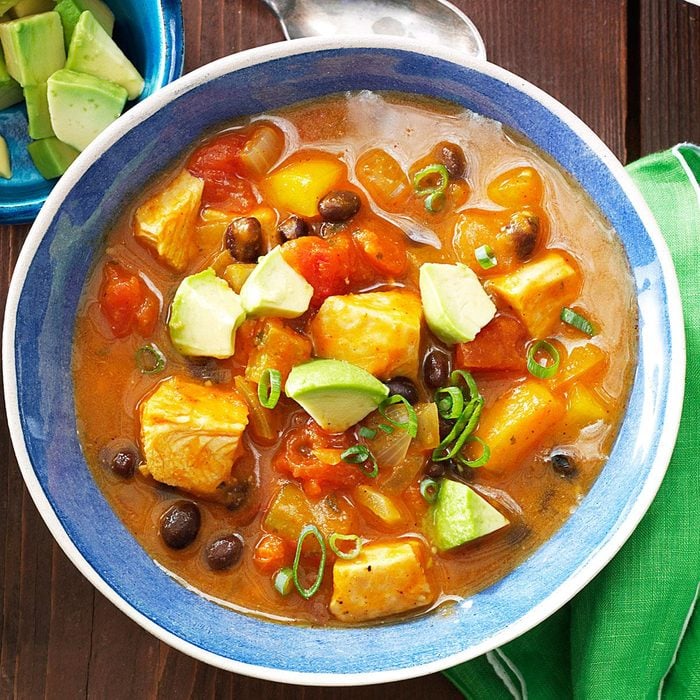Preparing the ingredients for your Thanksgiving feast is an hours-long process. You’ll want to scrub potatoes, soak the broccoli in salt water and re-wash the pre-washed lettuce. Because washing fruits and vegetables is the right way to avoid unwelcome bacteria, it only makes sense that you should wash your turkey as well, right?
It turns out washing your turkey is not the proper way to avoid bacteria. In fact, it actually makes the situation a whole lot worse.
Why Is Washing a Turkey Dangerous?
It may seem like a clean process, but washing a 15-pound turkey causes a lot of splashing near the kitchen sink. The backsplash coming off the turkey could mean contamination of food that will be placed on the counter later. According to the U.S. Department of Agriculture (USDA), any raw poultry can cross-contaminate other food with harmful bacteria and potentially cause food poisoning.
Check out this list of other foods you should never wash before cooking.
How to Prep Turkey Safely
Your Thanksgiving turkey doesn’t have to put the family at risk. It’s important to make sure your turkey is handled safely. The USDA makes the following recommendations:
- Disinfect your countertops with hot, soapy water before you prep the bird. Learn how to clean granite countertops.
- Wash your hands with warm soapy water for 20 seconds before and after handling the turkey. Use this expert-recommended hand-washing technique.
- Use a separate cutting board for raw turkey and follow guidelines for cutting board care.
- Remove the giblets from the bird and pat the cavity dry with paper towels.
- Check for any feather quills that may still be connected to the turkey’s skin and pluck them out.
- Never place cooked food or fresh produce on a plate, countertop or other surface that previously held raw turkey.
- Wash cutting boards, utensils, dishes and countertops with hot, soapy water after preparing the bird.
It’s also smart to keep raw turkey away from other foods you are buying at the grocery store, and keep it separate from other foods when defrosting in the refrigerator. If you’re still itching to clean your turkey before roasting it, patting it dry with paper towels is a better route to take.
How to Cook Turkey Safely
It’s simple—cooking the turkey to the right temperature is the best way to keep people safe from food poisoning. Use a meat thermometer to make sure turkey is cooked to an internal temperature of 165°F, which is high enough to kill the germs that would make people sick.
Make sure you test the turkey at its thickest part (usually the thigh), and if the bird is not quite cooked, make sure you wash your meat thermometer in hot, soapy water before testing again.
Still have questions about the bird? Follow our step-by-step guide on how to cook a turkey!
Clever Ways to Use Turkey Leftovers
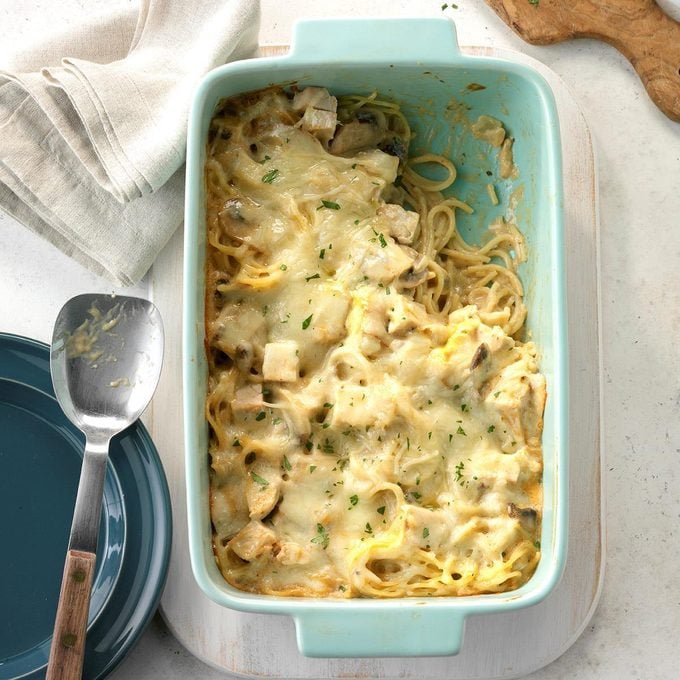 Leftover Turkey Tetrazzini Recipe photo by Taste of Home
Leftover Turkey Tetrazzini Recipe photo by Taste of Home
I make this recipe with leftover turkey, and it's a whole new meal! We look forward to having it after Christmas and Thanksgiving and other times when I roast a turkey for a family gathering. —Susan Payne, Corner Brook, Newfoundland
Go to Recipe
Turkey Sandwich with Raspberry-Mustard SpreadMy hearty sandwich has different yet complementary flavors and textures. It is filled with flavor and nutrients, without all the unhealthy fats, sodium and added sugar many other sandwiches have. And it’s absolutely delicious! —Sarah Savage, Buena Vista, Virginia
TLC (Thanksgiving Leftover Casserole)Turkey, stuffing and veggie leftovers come together into a fabulous casserole. There’s comfort in every bite. —Barbara Lento, Houston, Pennsylvania
Turkey PotpiesWith their golden brown crust and scrumptious filling, these comforting turkey potpies will warm you down to your toes. Because the recipe makes two, you can eat one now and freeze the other for later. They bake and cut beautifully. —Laurie Jensen, Cadillac, Michigan
Air-Fryer Turkey CroquettesI grew up with a family that looked forward to Thanksgiving leftovers. But we didn't just
reheat turkey and spuds in the microwave—we took our culinary creativity to a new level with recipes like these air-fryer turkey croquettes. Serve them with a crisp green salad for an unforgettable meal. —Meredith Coe, Charlottesville, Virginia
Turkey Shepherd’s PieWe live way out in the county, and the nearest grocery store is 25 miles away. So I've become quite skilled at turning leftovers into second-time-around successes like this turkey shepherd's pie. —Linda Howe, Jackman, Maine
Crescent Turkey CasseroleHow do you make a dinner of leftover turkey and vegetables really appealing to kids? You turn it into a pie, of course! My version tastes classic, but won’t take much time at all. —Daniela Essman, Perham, Minnesota
Anytime Turkey ChiliI created this dish to grab the voters’ attention at a chili contest we held in our backyard. With pumpkin, brown sugar and leftover turkey, it’s like an entire Thanksgiving dinner in one bowl. —Brad Bailey of Cary, North Carolina
Bistro Turkey SandwichAs a turkey lover who can't get enough during fall and winter, I was inspired to come up with a restaurant-worthy sandwich. I love it with a soft, rich cheese like Brie. —Grace Voltolina, Westport, Connecticut
Homemade Turkey SoupYou can make the most of even the smallest pieces of leftover turkey with this homemade turkey soup. I simmer the bones to get the rich flavor, then easily remove any meat that remains. I add rice, vegetables and cream soup for a hearty turkey soup that's tasty and economical. —June Sangrey, Manheim, Pennsylvania
Bistro Turkey CalzoneLeftover turkey, cheddar and bacon harmonize well with the apple in this family-friendly fare. —Donna Marie Ryan, Topsfield, Massachusetts
Turkey Curry with RiceWhen I have leftover turkey and a hankering for non-holiday food, I make turkey curry with carrots, cauliflower and mango chutney to spoon over rice. —Nancy Heishman, Las Vegas, Nevada
Weeknight Turkey Tortilla SoupThis is now my family's most requested soup—so much so that they will make sure I have leftover turkey. You can spice up this soup and make it more hearty by adding smoked sausage or andouille and some Cajun seasoning to taste. —Gail Lucas, Olive Branch, Mississippi
Turkey Alfredo PizzaA longtime family favorite, this thin-crust pizza is both tasty and nutritious. It's an excellent way to use up leftover turkey, too. —Edie DeSpain, Logan, Utah
Turkey a La KingThis is a smart way to use up leftover turkey. You might want to make a double batch! —Mary Gaylord, Balsam Lake, Wisconsin
Turkey-Stuffed Acorn SquashWe stuff acorn squash with leftover turkey, dressing and cranberry sauce. Make as much or as little as you need to use everything up. —Cindy Romberg, Mississauga, Ontario
Turkey Salad on Wheat BreadWhen one of my favorite lunch spots closed, this recipe let me hold on to more than just good memories. The peas, bacon and cheese are such a fun and springy combo. I make big batches of the salad for parties—turns out I'm not the only fan! —Merrijane Rice, Kaysville, Utah
Turkey Macaroni BakeA co-worker gave me this recipe when we were discussing quick and easy ways to use leftover turkey. The mild, cheesy casserole is a hit with my family. And it doesn't get much easier than this—you don't even have to cook the macaroni first! —Cherry Williams, St. Albert, Alberta
Turkey Lattice PieWith its pretty lattice crust, this cheesy baked dish looks as good as it tastes. It's easy to make, too, since it uses ready-to-go crescent roll dough and leftover turkey. —Lorraine Naig, Emmetsburg, Iowa
Curry Turkey Stir-FryJust open the fridge and go to town making this throw-together curry. We prefer leftover turkey, but if you like chicken, shrimp, even bean sprouts and carrots, by all means, add them. —Lauren Rush, Clark, New Jersey
Hot Brown Turkey CasseroleIf you've ever tried the Hot Brown Sandwich at the Brown Hotel in Louisville, Kentucky, you'll love this version. It can be assembled ahead and refrigerated; just adjust baking time accordingly if cold. —Diane Halferty, Corpus Christi, Texas
Turkey Enchiladas VerdesPlanning a fiesta night? These authentic-tasting enchiladas in spicy green sauce will please the whole family and you’ll be thankful for turkey leftovers. —Karyn Power, Arlington, Texas
Dilly Turkey MeltThis is a hearty grilled sandwich with a distinctive and delicious combination of ingredients. The pickle slices add a bit of fun, and the barbecue sauce provides a hint of sweetness that's irresistible. —Henry Mujica, North Riverside, Illinois
Turkey Biscuit SkilletMy mother always made this with leftover turkey while we were growing up. Now I make it for my own husband and kids. I use the small-size biscuits because they brown up so nicely on top. I also add mushrooms to this recipe sometimes because my family loves 'em. —Keri Boffeli, Monticello, Iowa
Classic Cobb SaladMaking this salad is a lot like putting in a garden. I plant everything in nice, neat sections, just as I do with seedlings. —Patricia Kile, Elizabethtown, Pennsylvania
Turkey Corn ChowderThis thick and rich turkey corn chowder uses up Thanksgiving leftovers. Every so often, my grandmother would even add chopped hard-boiled eggs to this chowder to give it a nice richness. —Susan Bickta, Kutztown, Pennsylvania
Grandma’s Thanksgiving Leftover RollsGrab that leftover turkey and roll it up with some sausage, cheese and vegetables to make a savory roll. To add an over-the-top touch, drizzle each roll with turkey gravy. —Kellie Braddell, West Point, California
Turkey CurryI'm always looking for new and interesting ways to use leftover turkey—especially around the holidays. Make this skillet meal as spicy as you'd like by varying the amount of curry powder. —Martha Balser, Cincinnati, Ohio
Southwestern Turkey BakeI make this turkey bake as a way to get my husband and nieces to eat their vegetables. It's also perfect if you're wondering what to do with leftover turkey. This creamy entree will fill you up fast. —Crystal Kolady, Henrietta, New York
Minestrone with TurkeyI remember my mom making this soup; now I make it for my kids as often as I can. It's a good way to use up leftover turkey and vegetables. Sometimes I add a can of rinsed and drained kidney or garbanzo beans. —Angela Goodman, Kaneohe, Hawaii
Turkey Spaghetti CasseroleMy mom made this creamy comforting dish when I was growing up. Whenever I have leftover turkey or chicken, I look forward to making this simple, yet tasty, filling dish. —Casandra Hetrick, Lindsey, Ohio
Sourdough DressingWhile we love our traditional Thanksgiving recipes, sometimes we want to change things up. This sourdough stuffing is a fun twist on an old favorite. Whenever we make it after the big feast, we like to add a cup or more of leftover cubed turkey. —Pat Dazis, Charlotte, North Carolina
Avocado Turkey SaladGrape tomatoes and avocado chunks add pretty color and fresh flavor to this main-dish salad. In a pinch, substitute half-and half or milk for the whipping cream, adding a teaspoon at a time until you get the desired consistency. —Taste of Home Test Kitchen
Butternut Turkey SoupAlthough chock-full of lots of nutritious vegetables and turkey, this soup is also light on calories. —Denise LaRoche, Hudson, New Hampshire
Slow-Cooked Turkey SandwichesThese sandwiches have been such a hit at office potlucks that I keep copies of the recipe in my desk to hand out. —Diane Twait Nelsen, Ringsted, Iowa
Italian Turkey SkilletIt's a challenge to find imaginative ways to use leftovers, especially for turkey after Thanksgiving. Here's a favorite of mine that you can easily make ahead for another dinner option. Prepare the recipe as directed, then transfer to a casserole dish and freeze up to three months. —Patricia Kile, Nokomis, Florida
“Thanksgiving’s Not Over Yet” Enchilada SoupPumpkin adds richness and depth of flavor to this warm and wonderful soup. Chock-full of turkey, it makes the perfect Thanksgiving curtain call. —Denise Pounds, Hutchinson, Kansas
BLT Turkey SaladThis variation of a BLT salad is great with a side of garlic bread or garlic toast, and will satisfy even the pickiest eaters. —Sherry Conley, Noel, Nova Scotia
Crispy Mashed Potato & Stuffing PattiesTalk about a fun way to use holiday leftovers! Making this turkey and stuffing patty is so fast. The family looks forward to this breakfast treat every year. —Kellie Ferea, Casa Grande, Arizona
Mexican Turkey Roll-UpsThis is the perfect recipe when you're hungry for a dish with Mexican flavor and want to use turkey. These roll-ups are fun and so tasty, even kids like them. It's a different use for leftover turkey. —Marlene Muckenhirn, Delano, Minnesota
Turkey BundlesThis recipe is definitely a must-try, and all you do is bundle up creamy filling and leftover turkey in crescent dough. I usually double the recipe so I have extra for lunch the next day. —Lydia Garrod, Tacoma, Washington
Turkey a la King with RiceI like to make this dish with our leftover turkey. It's a nice change from casseroles and so simple. Serve over rice, noodles, biscuits or toast. —Pat Lemke, Brandon, Wisconsin
Turkey Biscuit StewThis chunky stew makes a hearty supper, especially in the fall and winter. It's also a great way to use extra turkey during the holidays. —Lori Schlecht, Wimbledon, North Dakota
Fiesta Turkey Tortilla SoupI'm always thankful when I have leftovers and can pull such a delicious soup together in under 30 minutes. —Amy McFadden, Chelsea, Alabama
Cashew Turkey Salad SandwichesOne bite and you'll be hooked on this slightly sweet turkey salad sandwich. It's protein-packed so you can feel good while you munch! —Mary Wilhelm, Sparta, Wisconsin
Turkey CrepesThis savory crepe recipe has been passed down through many generations in my family. You can also use any leftover turkey filling for turkey pot pie. —Andrea Price, Grafton, Wisconsin
Black Bean 'n' Pumpkin ChiliMy family is crazy about this slow cooker chili because it uses ingredients you don't usually find in chili. Believe it or not, I discovered that pumpkin is what makes the dish so special. Cook up a big batch and freeze some for later; it tastes even better reheated. —Deborah Vliet, Holland, Michigan






















